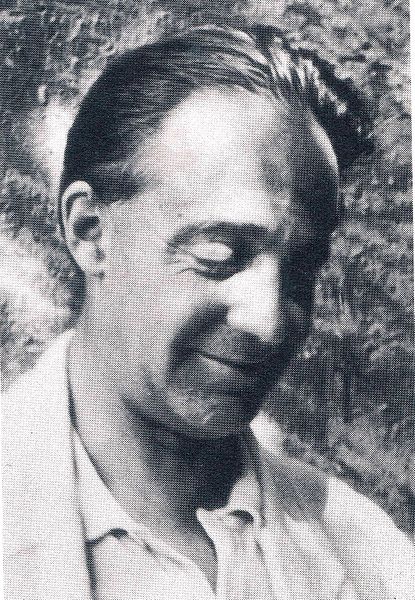 Anna-Mari, a follower from Estonia (welcome, Anna-Mari), commented on a recent post with a good question… “How does rethinking our God-images work with a doctrine as central and venerated as the Trinity?”
Anna-Mari, a follower from Estonia (welcome, Anna-Mari), commented on a recent post with a good question… “How does rethinking our God-images work with a doctrine as central and venerated as the Trinity?”
I’ll respond over these next few posts. Feel free to jump in with comments. What are you thinking?
***

Heinrich Zimmer
Heinrich Zimmer, a historian and philosopher of religion wrote that the greatest things are the things that cannot be talked about. Religion’s quest for God surely falls in this category. We can say words about God, but God is a greatest reality, and as such, cannot be contained in any word or image we hold in our minds. Our starting place as Christians is that we cannot talk about God.
That’s a pickle for a religion founded on the very quest for the Divine!
The second greatest things, Zimmer continues, are our attempts to talk about those things that cannot be talked about. The human quest for the Divine must be expressed in words. How else do we express our deep desires? Words and thoughts are all we have to work with!
So we talk about God. We form ideas about God. We tell stories about God. We frame our deepest, most transcendent experiences in terms of God. Our attempts to talk about that which cannot be talked about; this is a very beautiful thing we do.
 The third greatest things are the things we talk about with certitude. The sun will rise tomorrow. The sky is blue. Trees grow in the woods. Even these, philosophers and physicists tell us, aren’t as certain as we think they are… but we’ll talk about that some other time.
The third greatest things are the things we talk about with certitude. The sun will rise tomorrow. The sky is blue. Trees grow in the woods. Even these, philosophers and physicists tell us, aren’t as certain as we think they are… but we’ll talk about that some other time.When we speak of God, we must remember we are not talking about the third greatest things. We cannot speak about Divine Reality with certitude. Consequently, God-talk is not defining terms at all. Rather, it is our collective human effort to describe our deepest human experiences; experiences beyond words. It is our effort to articulate a deep, deep part of us; glimpses of a realer and truer Reality.

click HERE. it’s a great book!
These attempts demand a code word to help us express the inexpressible. “God,” or “The Divine,” have become the code words we use.
“God” is code for the experience of transcendent beauty, unequalled love, unmatched mercy, engulfing Truth and wisdom. We needed a code-word to talk about these most profound and deep experiences. “God” is what we came up with.
Part of the problem we Enlightenment Christians face, is that over time we reduced “God” to thoughts we think, ideas in our heads. We reduced the experience of God to defining God. We worked hard to define God’s attributes, we believed them, we taught them to one another. This was a natural by-product of forgetting that God is a “first-things,” “un-speak-able” Reality.
And this influences how we think about our doctrine of the Trinity.
Next post.